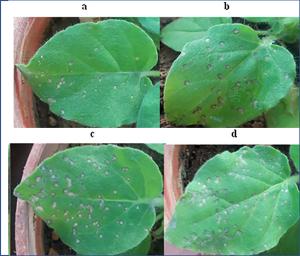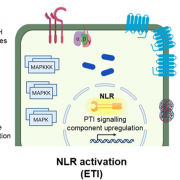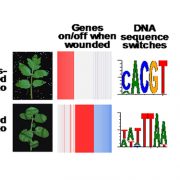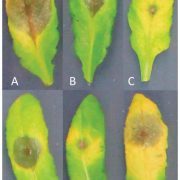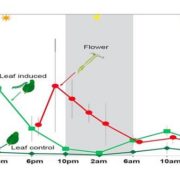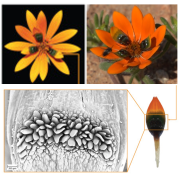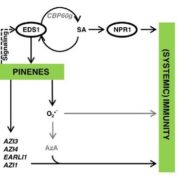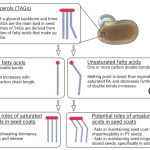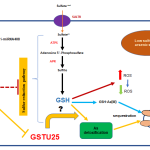tter gourd protein for defense against plant viral diseases
Bitter gourds (or bitter melon) have been a childhood nightmare of mine. I remember that as a child, my grandparents used to force me to consume these really bitter gourds (Momordica charantia) telling me that they had ‘many benefits’. In addition to being a rich source of antioxidants, M. charantia seeds and fruit contain a ribosome inactivating protein (RIPs) called MAP30 (Momordica Antiviral Protein 30 kDa), known for its anti-tumor and anti-HIV activity as well as anti-microbial activity. RIPs chemically affect the universally conserved α-sarcin loop of large rRNAs, thereby inactivating the ribosome and translation. In a new study, Amirzadeh et al. showed that recombinant MAP30 (rMAP30) can suppress tobacco mosaic virus (TMV) and cucumber mosaic virus (CMW) infection in Nicotiana glutinousa and Chenopodium quinoa seedlings. rMAP30 significantly reduced the number of infection spots on leaves by 60-70% These in vivo anti-viral properties showed potential applications of rMAP30 in the field to control bacterial and virus infections and consequently crop losses. However, more in vivo studies with other viruses and with mature plants are needed to confirm these results. In reality, it might not be feasible to inoculate every crop leaf in the field. Hence, further studies need to be done to see whether different inoculation techniques such as aerosolized rMAP30 or rMAP30 in irrigation water can reduce crop diseases. (Summary by Apple Chew @_applechew) Sci. Rep. 10.1038/s41598-023-29365-7


